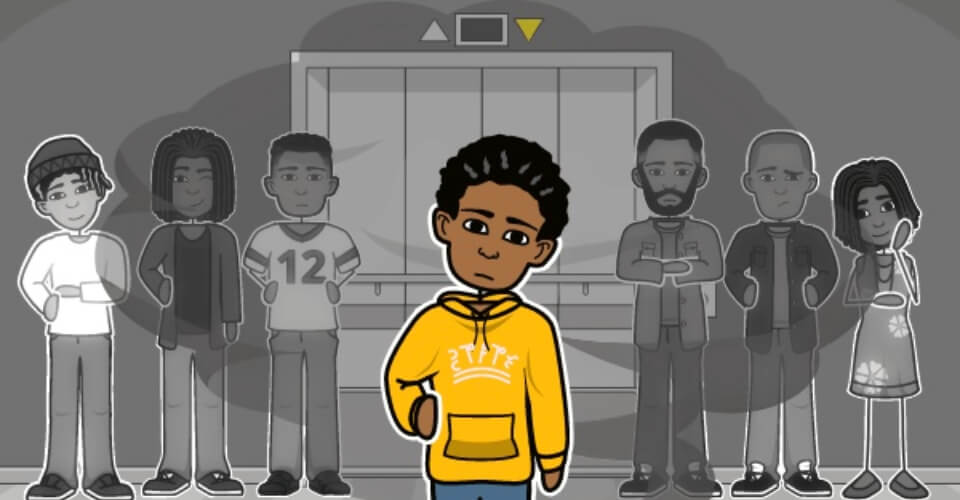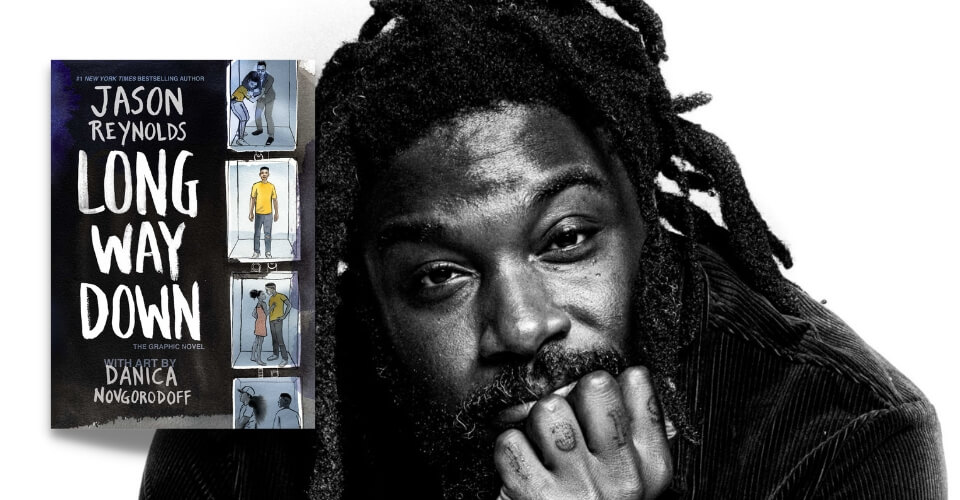Long Way Down is a 2017 young adult novel by Jason Reynolds.
The book was named Printz Honor Book, Coretta Scott King Honor Book, and Newbery Medal Honor Book while longlisted for the National Book Award.
This epic story has amassed positive reviews and is recommended in several schools.
The story explores the concept of scaling the right and wrong choices on a beam balance.
What would you do if you had the right to seek revenge but were also perpetuating a chain reaction? Is there a right or wrong answer? Let us explore the moral compass of Long Way Down.
Long Way Down Quick Summary
Will and Shawn are the products of the “street.” Living in a violence-prone neighborhood, the young boys are navigating their coming-of-age while assimilating normative masculinity. But their lives take a dark turn when Shawn is killed in a gang-related shootout.
Now, Will is left with an obvious choice– revenge!
It is obvious since he has to follow the street rules:
Don’t cry
Don’t snitch
Get revenge
Will sets out for vengeance with Shawn’s gun and takes an elevator. This is where the story explores “time is relative.” As the elevator descends, he encounters a dead person from his past.
Floor 5
BUCK is Shawn’s mentor. He integrated him into the neighborhood and handed him a gun. This can symbolize Will’s first frame of mind, which compels him to turn on his rage and seek revenge for his brother.
Floor 4
DANI is Will’s childhood crush. But her story of being killed at eight years old due to a stray shot shifts Will’s mind for a brief moment. Will’s mind is clouded by fear when Dani says, “What if you miss?”
Floor 3
UNCLE MARK is the typical tough guy who wants his nephew to man and make a plan of action. This phase of Will’s mind can be interpreted as– “it is what everyone does. So why not me?”
Floor 2
MIKEY, Will’s father, was absent in his life. When he enters the elevator, Will has a moment of being the child that he is and not being all macho for the streets. He is seeking a firm answer to the overflowing doubts in his head. Mikey tells Will that he was in a similar situation before. In a fit of rage, he killed the wrong person, and then his acquaintance got revenge on him– thus continuing a cycle.
This is a validation for Will that he is making a hasty decision. But still, there is turmoil for his revenge.
Floor 1
SHAWN is the last person to enter, and there is no dialogue. It’s only Shawn crying, and Will’s mind is utterly numb at the sight. Shawn gets out as the elevator door opens and asks Will, “You coming?”
And that’s where the story ends.
What Happened to Will at the End of Long Way Down?

As the door opens to the final floor, Will’s steps determine his decision. But the author leaves us right there. He wants the readers to make a decision for him.
The 1-minute elevator ride fragments his mind into five different stages. These phases can also be symbolic of various stages of grief- anger, denial, bargaining, depression, and acceptance.
Since Will is not allowed to cry over his brother’s death, his unhealthy coping mechanism is defined by toxic masculinity and the perils of patriarchy in the neighborhood.
Each person narrates Will’s moral compass. But only Will can decide where the needle would point–either towards revenge or return back.
Why Did Shawn Cry at the End of Long Way Down?
Remember the first rule of the streets– Don’t cry.
But sorrow, grief, despair, and regret can all be expressed only by crying. Will and Shawn are prohibited from crying if they want to be a part of the hood. This repressed expression was molding them into the toxicity that could have resulted in more violent tendencies.
But now, Shawn has lost everything, including his life. He valued his life based on other people’s perceptions. And now that he has lost it, he regrets living with such low regard for human life.
The final cry expresses his regret for taking the wrong path. It can also be perceived that Shawn thinks he is a flawed role model for his younger brother, seeing Will take the same vicious approach.
And finally, he cried because his decision had left Will alone to face the world. This one cry is all repressed feelings that men are so hesitant to express.
How Is the Ending of Long Way Down Ambiguous?
The author leaves us on a cliffhanger.
Now the moral compass is in our hands.
This could go in either way–
If Will steps out of the elevator:
His anger has overpowered all his emotions. And he is ready to join the social fabric that took his brother’s life.
If Will closes the elevator door again:
He has realized that one revenge will ignite a chain of events where he might end up dead like his father. But more than that, Will is enlightened about the value of human life, which the whole neighborhood has failed to do so.
The ending seems ambiguous only because we have to make a decision. And several proses in the book suggest that Will is a sensible child trapped in the wrong environment.
The book addresses the issues of rising gun violence in the black neighborhood, where children are often the victims of gang-related violence, as seen in the real-life case of YNW’s friends who were killed in a shootout.
What do you think of this book? How do you interpret the ending? Let us know in the comments section below.

